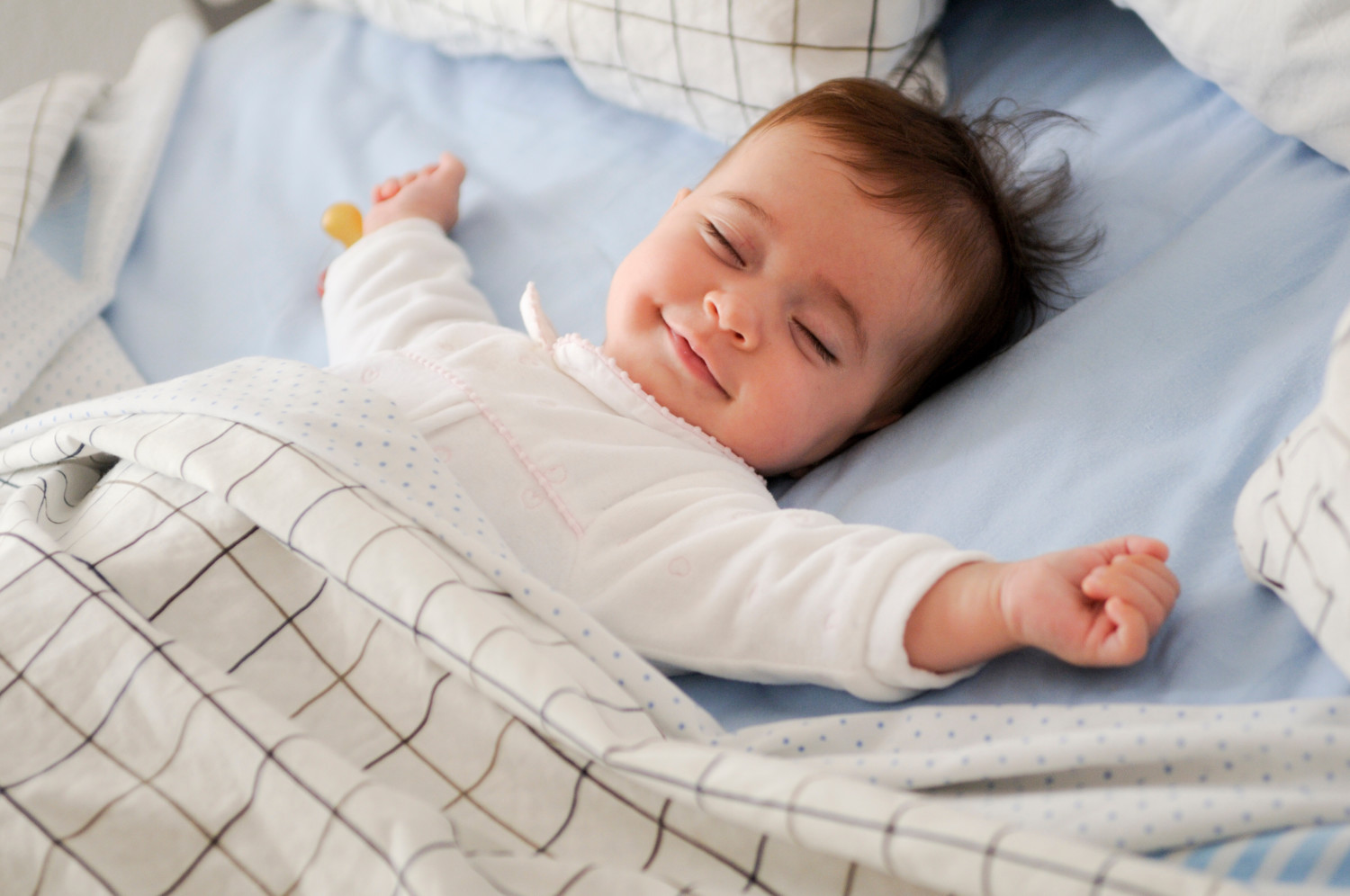Thankfully, sudden infant death syndrome (SIDs) declined in the 1990s, in part due to the Safe Sleep Campaign launched by the American Academy of Pediatrics, which urged parents to put infants down on their backs and remove all objects from the crib, among other recommendations.
But death rates for babies from sleep-related deaths haven’t declined since then, and around 3,400 infants die every year. With that background in place, AAP has now issued another warning about a newer product — one that seems to follow those guidelines but is actually dangerous: the weighted baby sleep sack.
Weighted sleep sacks for infants, like weighted blankets in general, have become very popular in the last few years. One company that sells the weighted sleep sack, Dreamland Baby, explains on its site that these products are designed to reduce stress while providing security and comfort.
But last year, the AAP expressed some alarm about these products. Now, this professional association for pediatricians is stepping up the campaign to make sure parents are aware of safety issues surrounding sleep sacks for babies.
“Weighted swaddles, weighted clothing or weighted objects on or near the baby are not safe and not recommended,” the AAP stated in its most recent recommendation for safe sleep.
On June 15, the organization sent a letter to Alexander Hoehn-Saric, chair of the Consumer Product Safety Commission, and Donald Mays, chair of the F15 Committee on Consumer Products at the American Society for Testing and Materials International, reiterating its warning and expressing opposition to the idea that companies might be able to develop their own safety standards for weighted infant sleep products, including weighted sleepers and swaddles.
The letter pointed out there is no scientific evidence evaluating the safety of weighted sleep products, but that preliminary data from a small study suggests they are associated with reductions in oxygen saturation levels in babies, which could harm their brain development.
“The AAP is concerned that ongoing efforts to develop a voluntary safety standard for these weighted infant products through ASTM International will send parents and caregivers the incorrect message that these unnecessary products are safe,” AAP President Dr. Sandy L. Chung wrote on behalf of the AAP. “While voluntary standards are appropriate for certain products, given the AAP’s clear policy regarding the danger of weighted sleep infant products, we oppose the development of any voluntary standard for these products.”

Dr. Michael Goodstein, a neonatologist and a member of the AAP’s task force on SIDS, explained that infants’ rib cages are more elastic and flexible, so a weighted sleep sack or blanket could affect their breathing.
“Why would anyone put a weight on top of a child’s chest — particularly a newborn?” he asked NBC.
NBC News reports Hoehn-Saric is aware of the AAP’s concerns. The agency’s staff is taking action, investigating weighted products as well as wearable blankets in general. For now, he said parents should “shop carefully and consult with their pediatrician before buying any product that claims to improve baby health or help with sleep.”
The AAP’s position is that a “precautionary” approach is needed to prevent the more than 100 deaths that resulted from the availability of inclined and in-bed sleepers, along with other infant sleep products. Meanwhile, companies that sell sleep sacks say their products are safe and that alarm is unwarranted.
To date, the Consumer Product Safety Commission’s database lists one infant who died in 2021 while wearing a weighted sleep sack, although it remains unclear if that sleep sack was what led to the child’s death.
***Correction: Due to a reporting error, this story was updated on June 22, 2023, to correctly spell the names of Dr. Sandy Chung and Daniel Mays.
This story originally appeared on Simplemost. Check out Simplemost for additional stories.


